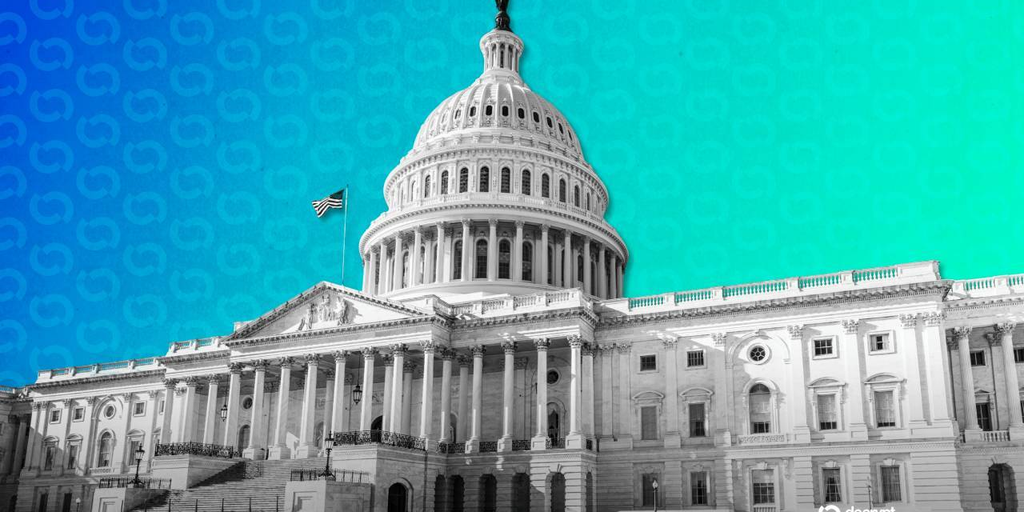
Summary
- House Republicans have incorporated anti-CBDC provisions into an upcoming Defense Bill.
- The U.S. is the only major economy currently pausing the development of retail CBDCs.
- Stablecoins are gaining popularity in the U.S. as lawmakers express concerns about the privacy and control issues associated with CBDCs.
House Republicans have included a section prohibiting central bank digital currencies (CBDCs) within a comprehensive bill outlining defense budget allocations and priorities for the upcoming financial year.
The provision, found within bill H.R. 3838, would bar the Federal Reserve from testing, developing, or implementing a CBDC under any designation.
An exception is included for “any dollar-denominated currency that is open, permissionless, and private, preserving the privacy safeguards of U.S. coins and physical currency.”
“Linking our Anti-CBDC Surveillance State Act to the NDAA will ensure that unelected officials are NEVER allowed to compromise Americans’ financial privacy for a CCP-style surveillance tool,” GOP Majority Whip Tom Emmer stated last month, in reference to the legislation.
Linking our Anti-CBDC Surveillance State Act to the NDAA will ensure that unelected officials are NEVER allowed to compromise Americans’ financial privacy for a CCP-style surveillance tool. @POTUS has made it evident: our legislation is pivotal to our America First agenda, and we…
— Tom Emmer (@GOPMajorityWhip) July 17, 2025
The push against CBDCs in the U.S. is primarily driven by Republicans. Emmer attempted to present a CBDC Anti-Surveillance State Act in 2023, but it failed to gain traction. The bill was reintroduced following Trump’s return to office and is now progressing through the Senate.
CBDCs on a Global Scale
Globally, CBDCs are growing at a rapid pace. The Atlantic Council reports that 137 countries are investigating digital replicas of their currencies, a significant increase from 35 in 2020, with 72 already in advanced stages of development. The U.S. remains an exception following President Trump’s executive order earlier this year to cease all retail CBDC efforts.
The resistance to CBDCs in the U.S. illustrates differing perspectives on the future of currency. Critiques of CBDCs raise concerns about governmental overreach, surveillance, and the potential disruption of the banking sector.
The American Bankers Association (ABA), which supported the House bill in July, contended that a CBDC “would fundamentally alter the relationship between citizens and the Federal Reserve, undermine the essential role that banks play in extending credit, exacerbate economic and liquidity crises, and hinder the effective transmission of monetary policy.”
Nanak Nihal Khalsa, Co-Founder of human.tech by Holonym, expressed to Decrypt a desire for the Senate bill against CBDCs to be passed, fearing that society may be “falling into surveillance money.”
“The apprehensions are certainly valid,” he remarked, labeling CBDCs as “programmable money regulated by the state.” He emphasized that, “Once every transaction is recorded on a state ledger, privacy is essentially lost, and the question isn’t if it will be misused, but when.”
“If the U.S. takes a firm stance against CBDCs, it paves the way for alternatives that are open, permissionless, and genuinely uphold privacy—elements that originally made digital currency valuable,” Khalsa stated.
Khalsa noted that stablecoins issued by private firms also pose similar risks. “Private companies have equivalent motivations to surveil, exclude, and monetize,” he explained. “The only distinction is the entity you choose to place your trust in—government or corporation. Without privacy safeguards ingrained in the protocol, you’re merely deciding which power you want to be subjected to.”
The EU-based financial nonprofit Finance Watch informed Decrypt that it believes surveillance concerns stem from “design rather than the concept of a CBDC itself.”
“It is entirely feasible to develop a CBDC that is open, permissionless, and safeguards the same privacy protections as cash,” a spokesperson stated. “Achieving this requires privacy by design and default, strict data collection limits, and offline features for small transactions.”
“The fundamental debate is whether monetary systems should be driven by private enterprises or issued by a central bank, akin to cash,” they added, arguing that the digital Euro currently in development within the EU is being crafted as “a public counterpart to established, privately managed payment methods, reinstituting citizens’ command over money and payment systems.”
Daily Debrief Newsletter
Begin each day with the most crucial news stories of the moment, alongside original articles, a podcast, videos, and more.

